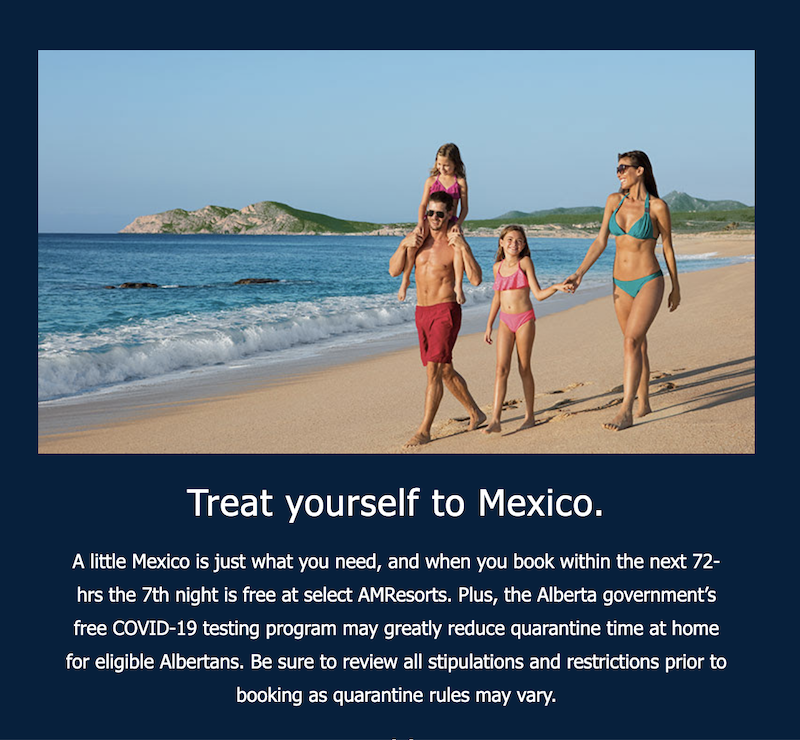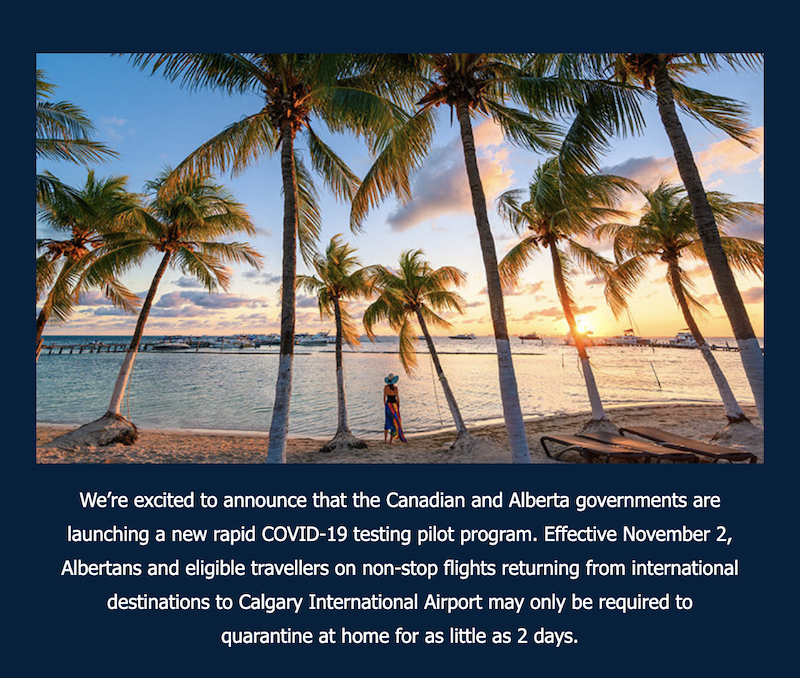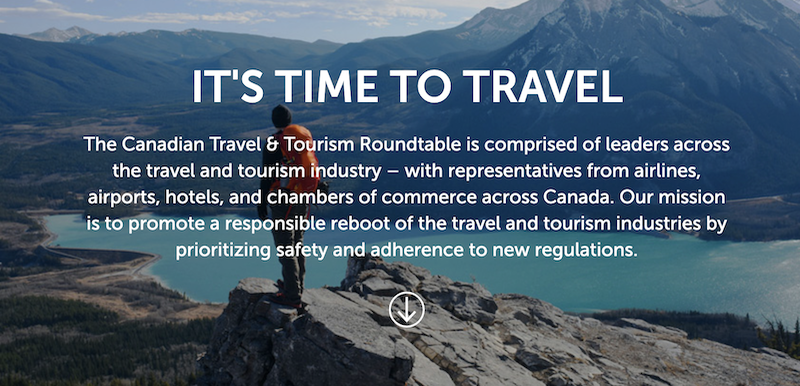
Despite COVID-19 restrictions, Albertans travelled to Hawaii over the holidays. Photo: iStock/valio84sl
How Alberta encouraged beach travel, despite its own warnings
Kenney’s former chief of staff has been lobbying for WestJet.
Now more than ever, Albertans need strong independent journalism.
Sign Me Up!Thanks to the support of 1,900+ Sprawl members none of our stories are behind a paywall. Help us do more of the journalism we need right now, become a member today!
On January 5, as Albertans’ anger over jet-setting politicians continued to boil, Mayor Naheed Nenshi revealed that two of his staffers—including his chief of staff, Devery Corbin—travelled to Hawaii over the holidays.
More revelations are sure to come. But why did all these people think it was okay to travel on a so-called “safe travel corridor” between Alberta and Hawaii in the first place?
It struck many Albertans as tone-deaf when Premier Jason Kenney talked up the airline industry at a New Year’s Day press conference, after news broke that then-Municipal Affairs Minister Tracy Allard vacationed in Hawaii over the holidays.
“If all or almost all travel was to be suspended, I do not believe that WestJet could survive,” said Kenney at the time. He added that “the failure of that company would frankly be a catastrophe” for Alberta’s economy and pandemic recovery.
It seemed an odd time and place to plug WestJet.
The province has told Albertans to “avoid non-essential travel outside Canada,” but flying abroad during the pandemic, Kenney suggested, is simply what many Albertans do.
“Tens of thousands of Albertans are currently out of the province,” he said. “Many of them on vacation in warmer climates. Tens of thousands more have plans to do the same over the months to come.”
If all or almost all travel was to be suspended, I do not believe that WestJet could survive.
For Albertans who gave up seeing family and friends over the holidays to comply with provincial restrictions, there was a deep sense of betrayal. We were told to hunker down and, by and large, we did. How can we be forbidden from crossing the street to see friends, but it’s okay for those with means to leave all this behind and hop on a plane to Maui?
If you’ve flown WestJet in the past, part of the story is likely sitting in your email inbox.
From Kenney strategist to WestJet lobbyist
For months, WestJet has been openly promoting getaways to “sunny destinations”—and specifically Hawaii—as an alternative to hunkering down at home.
Wellington Advocacy Inc., a company run by Nick Koolsbergen, Kenney’s former chief of staff (2017-2018), has been lobbying the provincial government on behalf of the Calgary-based airline since March, according to disclosures filed in the provincial lobbyist registry.
Koolsbergen launched Wellington after the 2019 provincial election. During that campaign, Koolsbergen served as Kenney’s campaign director.
Since then, Wellington has lobbied the UCP government on behalf of everyone from Postmedia (“to discuss ways Postmedia could be involved in the government's energy war room”) to Enbridge.

In addition to CEO Koolsbergen, Wellington lobbyists on the WestJet file in 2020 include company VP Brad Tennant, a former UCP executive director and fundraising director; and Wellington director of public affairs Peter Csillag, a former director of issues management for the UCP caucus.
Rachel Curran, a former policy director for Prime Minister Stephen Harper, also lobbied on the file. (Curran left Wellington last May to become a public policy manager for Facebook.)
Hit hard by the pandemic, the Canadian airline industry as a whole has fought for travel to be reopened—and Kenney has echoed this call.
For WestJet, Wellington lobbied numerous Alberta government departments last year, including the premier’s office, on “how to make Alberta the most competitive jurisdiction for the aviation industry.” In November, the Calgary Herald reported that the airline “has consistently lobbied for rapid testing programs and reduced quarantine.”
The Sprawl requested an interview with Koolsbergen to seek more details, but Wellington declined the request, saying the company does not comment on client matters.
Asked about Wellington and WestJet, Kenney press secretary Christine Myatt said in an email that because the federal government—which regulates international travel—didn’t shut down airports, the province “did support introducing science-based methods to ensure safe travel.”
Alberta openly encouraged Hawaii flights
To stimulate mid-pandemic international travel, last fall WestJet championed two new programs: a pilot COVID-19 testing project for international travellers, and a WestJet “travel corridor” specifically between Alberta and Hawaii.
WestJet sent an October 22 email to customers with a photo of palm trees and a beach sunset. "Your getaway is a go,” declared the airline.

The occasion? In early November, the provincial and federal governments jointly rolled out a rapid-testing pilot program for international passengers at the Calgary International Airport.
Upon landing, travellers take a COVID-19 test on site and results are processed swiftly. If you test negative, travellers can be quarantine-free in as few as two days—instead of isolating for the standard 14 days.
“This means that getaway you’ve been craving is possible,” read WestJet’s promotional email.
Then, on November 19, WestJet announced a new program for passengers flying from Alberta to Hawaii. Travellers would pay $150 to get pre-tested before flying to the islands and, if they tested negative for COVID-19, they’d be exempt from Hawaii’s 14-day quarantine requirement.
The tests are processed by DynaLIFE, a private lab company that has also been actively lobbying the Kenney government for a bigger role in health services.
One of those lobbyists is longtime conservative political insider Hal Danchilla, co-founder of CSG Canadian Strategy Group Inc. As Press Progress reported in November, Danchilla has personally advised Kenney as a strategist and was one of the people behind the pro-UCP group Alberta Can’t Wait.
When WestJet rolled out the Alberta-Hawaii arrangement, the airline marketed it as “Canada’s first safe air travel corridor.”
If you’re a Canadian consulting the federal government’s website for direction, however, you’ll still find a strong recommendation against jet-setting.
Alberta and Hawaii politicians both praised it. “Many Canadians love to visit Hawaii during the winter months to escape the cold weather, so the timing for this works well,” said state’s governor David Ige in WestJet’s news release.
Alberta economic minister Doug Schweitzer said he was pleased Hawaii “has clearly expressed that DynaLIFE’s made-in-Alberta testing is safe for international travellers to visit their islands with a significantly reduced quarantine period.” (WestJet expanded this program to B.C. in December, using a different lab company there.)
WestJet wouldn’t disclose to The Sprawl how many people have flown via the Alberta-Hawaii program since it was launched, citing “competitively sensitive information.”
In an emailed statement, the company stated that “WestJet has worked with all levels of government to ensure the safest travel measures are in place.”
Mixed messages leave public confused, angry
But WestJet hasn’t had a corner on promoting foreign getaways to Canadians.
Other airlines, including Air Canada, have also promoted international vacations. These tourism campaigns have run in plain sight at the same time provincial and federal governments have introduced new COVID-19 restrictions and explicitly warned against non-essential international travel.

Air Canada’s homepage, for example, has a link front and centre: “Where can I travel right now?” This takes you to time-to-travel.ca, which lists nearly 50 countries—such as Barbados, Mexico and Vietnam—“that Canadians can travel to for any purpose (leisure or business) with little to no restrictions.”
That website is run by the Canadian Travel & Tourism Roundtable, an industry group “dedicated to re-opening the Canadian economy.” Members include WestJet, Air Canada and the Hilton hotel chain.
If you’re a Canadian consulting the federal government’s website for direction, however, you’ll still find a strong recommendation against jet-setting.
“Canadian citizens and permanent residents are advised to avoid all non-essential travel outside of Canada until further notice to limit the spread of COVID-19,” it reads. “The best way to protect yourself, your family and those most at risk of severe illness from COVID-19 in our communities is to choose to stay in Canada.”
“Contact your airline or tour operator to determine options for cancelling or postponing your trip.”
The Alberta government website is similarly clear: “Avoid non-essential travel outside Canada until further notice.”
After Kenney announced sweeping restrictions on December 8, including a ban on indoor and outdoor gatherings, the province was initially even more specific. On its web page titled "Stronger public health measures," the government said the following about non-essential travel: "All out-of-town travel is discouraged at this time.”
This line was deleted by December 11 (but can still be viewed via the Internet Archive's Wayback Machine).
All of this contradictory messaging adds up to a confused public.
It sends mixed messages to the public and it creates anger in the public.
On one hand, the province has said don’t travel unless you need to. On the other, it has bowed to industry pressure to sanction and even actively encourage more of the travel that the government purports to be discouraging.
“It sends mixed messages to the public and it creates anger in the public,” said Lorian Hardcastle, an associate professor of health and law at the University of Calgary. “Because it looks like these restrictions are here for you but not for us.”
“We can travel. You can’t even have friends in your backyard.”
As of January 6, Alberta had the second-highest rate of active COVID-19 cases in Canada per capita, slightly behind Manitoba.
“Now is not the time to be sending mixed messages and undermining public health measures,” Hardcastle said.
“We’re all fatigued with COVID restrictions at this point, but with the more virulent strain out there and with vaccines on the horizon, now is really the time to double down—not to back off.”
Jeremy Klaszus is editor-in-chief of The Sprawl.
We want to hear from you! Send letters to the editor to hello@sprawlcalgary.com.
Now more than ever, Albertans need strong independent journalism.
Sign Me Up!Thanks to the support of 1,900+ Sprawl members none of our stories are behind a paywall. Help us do more of the journalism we need right now, become a member today!
